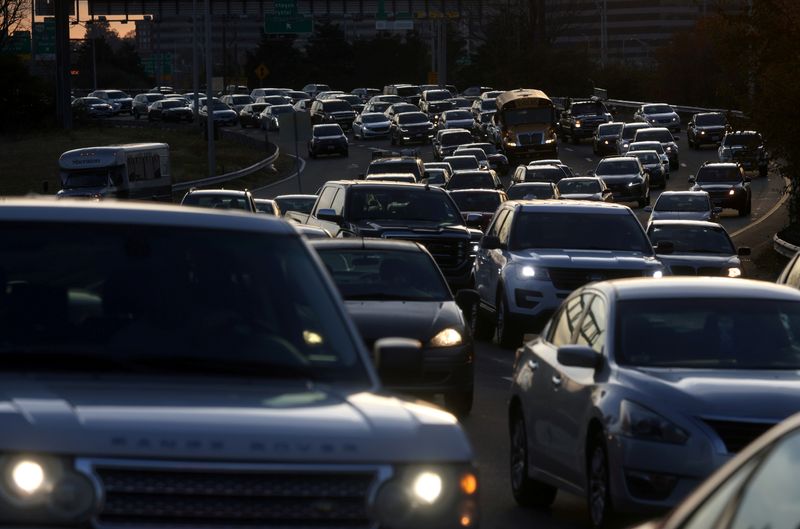By David Shepardson
WASHINGTON (Reuters) -Twenty-two states urged a U.S. appeals court to uphold new federal rules to reduce vehicle emissions by 28.3% through 2026, after other states and industry participants challenged the planned changes.
The filing https://oag.ca.gov/system/files/attachments/press-docs/EPA%20GHG%20Standrds%20-%20Motion%20to%20Intervene.pdf, led by the state of California, urged the U.S. Court of Appeals for the District of Columbia to uphold the Environmental Protection Agency's new rules, which take effect in September. The rules reverse former President Donald Trump's rollback of car pollution cuts and aim to speed a U.S. shift to more electric vehicles (EVs).
"We're at a crossroads: Do we sit back and accept the status quo, or do we step up and fight to save our planet?" said California Attorney General Rob Bonta.
President Joe Biden's administration finalized rules in December undoing the Trump-era action easing requirements imposed during the presidency of Barack Obama.
Some ethanol producers said last week the new EPA rules "effectively mandate the production and sale of electric cars rather than cars powered by internal combustion engines."
The EPA has also started moving to restore California's legal authority to set tough vehicle emission rules and zero-emission vehicle mandates. A waiver granted to California in 2013 to set vehicle rules was revoked in 2019 under Trump.
The California Air Resources Board (CARB) said Tuesday it plans to significantly increase EV requirements by 2030 as the state moves to phase out the sale of gasoline-powered light duty vehicles by 2035.
CARB spokesman Stanley Young said the proposal, which is still under staff review, aims for 68% ZEVs of new vehicles in 2030, 76% in 2031, and 100% in 2035.

The proposal goes further than a draft document issued in December which was criticized by environmental groups Monday as insufficient.
EPA spokesman Nick Conger said Monday the agency is "working to finalize a decision on the California waiver and expects to issue a decision in the near future."